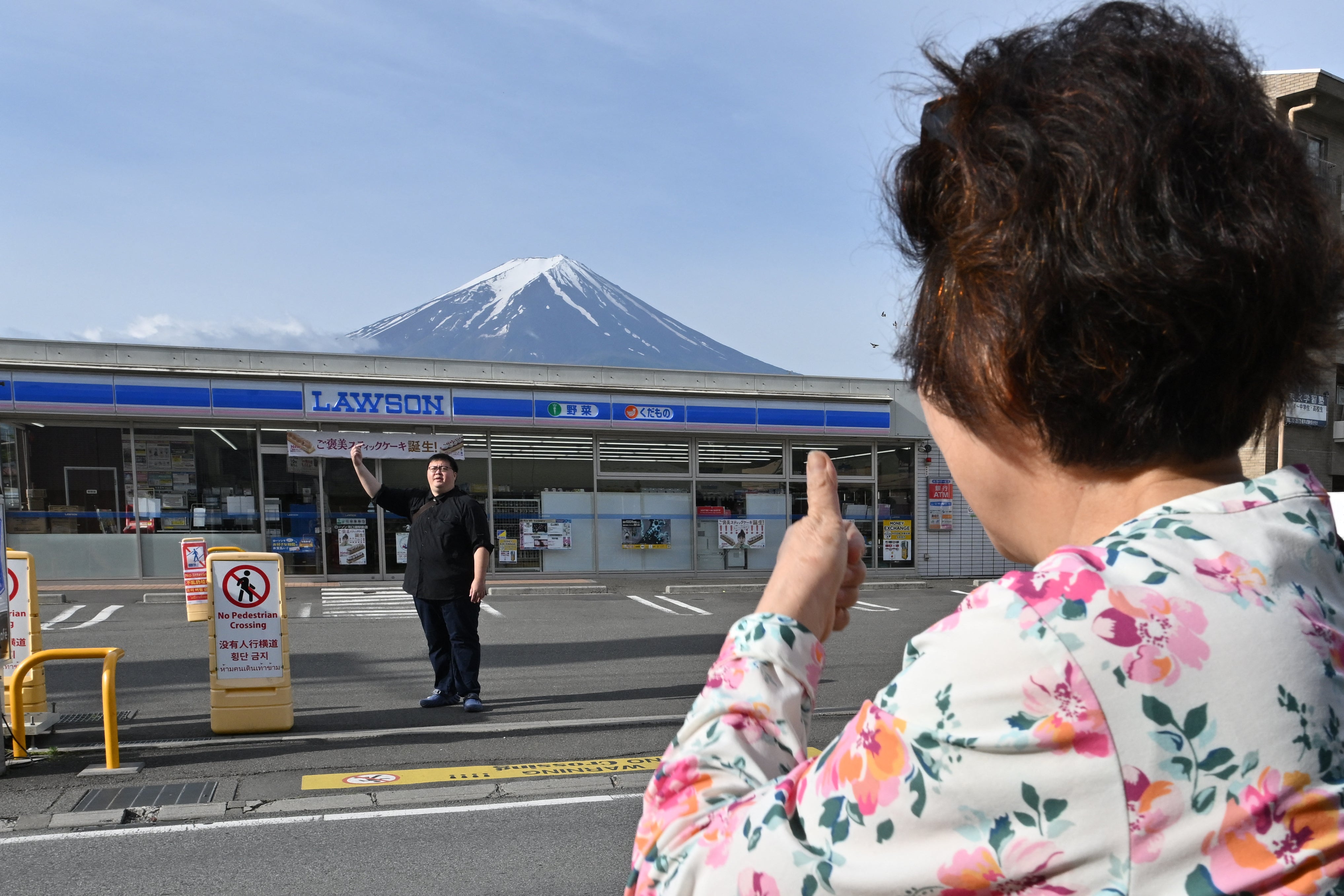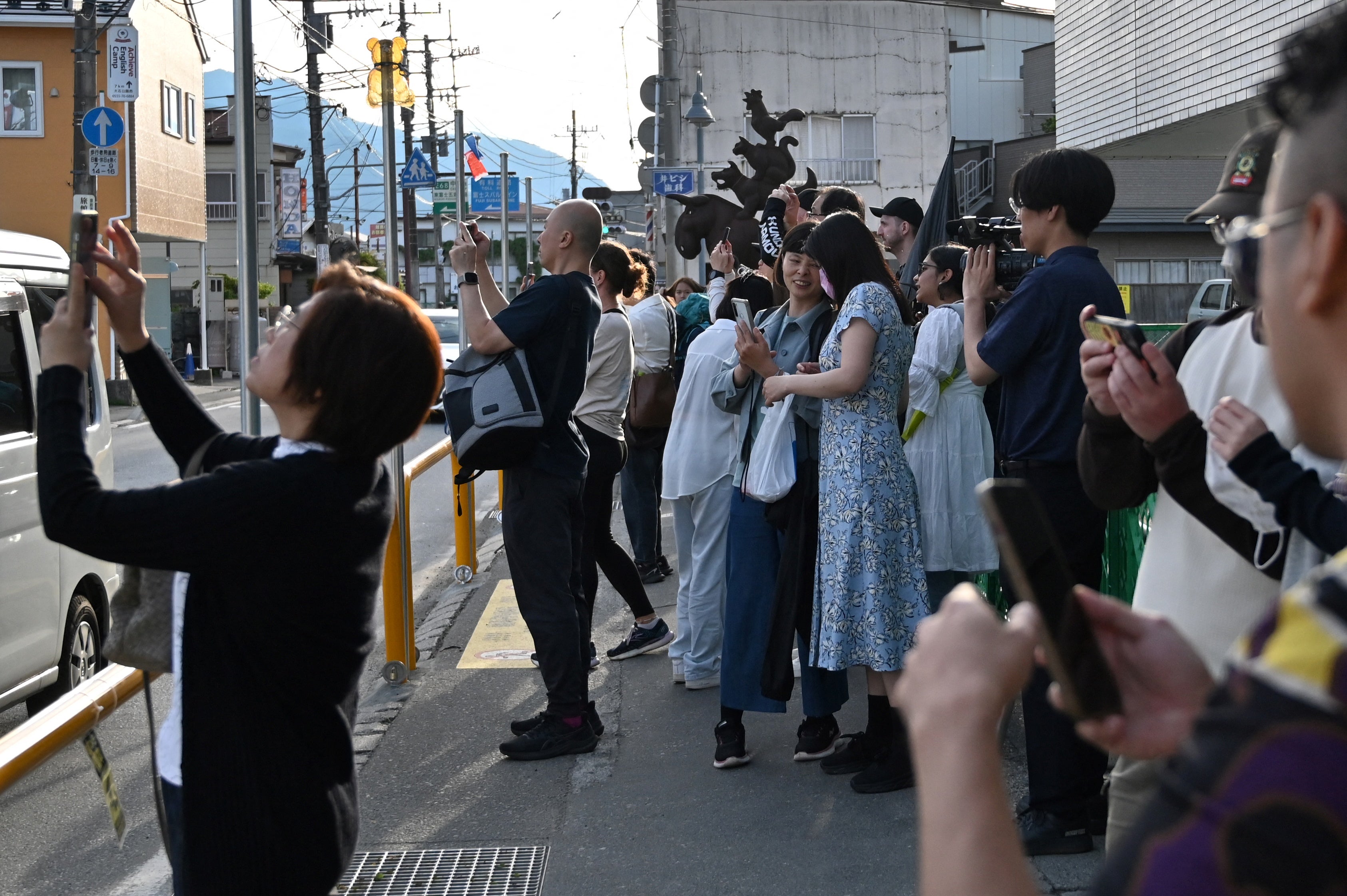Japan says tourists will need driver’s licence to ride motorised electric suitcases
Popular motorised luggage are illegal in Japan if driven without safety equipment or licence
Your support helps us to tell the story
From reproductive rights to climate change to Big Tech, The Independent is on the ground when the story is developing. Whether it's investigating the financials of Elon Musk's pro-Trump PAC or producing our latest documentary, 'The A Word', which shines a light on the American women fighting for reproductive rights, we know how important it is to parse out the facts from the messaging.
At such a critical moment in US history, we need reporters on the ground. Your donation allows us to keep sending journalists to speak to both sides of the story.
The Independent is trusted by Americans across the entire political spectrum. And unlike many other quality news outlets, we choose not to lock Americans out of our reporting and analysis with paywalls. We believe quality journalism should be available to everyone, paid for by those who can afford it.
Your support makes all the difference.Japan is cracking down on travellers arriving with rideable motorised suitcases and will require them to carry a valid driver’s licence amid safety and overcrowding concerns.
Two major airports in Japan have asked travellers to not ride electric suitcases that double as a scooter. Recently, several foreign travellers landed in trouble after they were seen riding their luggage on the sidewalks.
Motorised luggage have become increasingly popular among travellers for providing ease of mobility at airports and train stations. The three-wheeled luggage is powered with lithium-ion batteries and looks similar to a children’s scooter.
Under Japanese laws, these suitcases are classified as “motorised bicycles” that can be “ridden on roads only with the required safety equipment and a driving licence”. They fall under the same category as mopeds and some of them could be driven for up to 13km an hour.
A Chinese woman studying in Japan in June became the first person to be referred to prosecutors for driving the luggage on sidewalks of Osaka without a licence.

Earlier that month, an Indonesian boy alarmed authorities after he was seen riding the suitcase in Osaka’s Dotonbori district, one of the busiest shopping areas in Japan. The family of the boy was reportedly surprised after they were told riding such devices on roads is illegal in Japan, even if they could be driven anywhere in Indonesia.
The Narita airport near Tokyo said some people in the terminal building complained about the travellers moving around riding their suitcases.
The Chubu Centrair International Airport in Aichi Prefecture and Kansai International Airport in Osaka also advised travelers not to ride them in their facilities.

Police have urged domestic retailers to warn customers against its use without completing the legal requirements to use it.
The checks over electric luggage are the latest attempt of the country to control overtourism as a record number of tourists arrived in Japan causing several issues.
As the travellers took advantage of the weak yen, the first six months of 2024 saw 17.7 million foreign tourists, eclipsing the previous six-month record of 16.63 million in 2019.
To address the issue, Japan capped daily visitors to Mount Fuji to 4,000 hikers and a ticket of Rs 2,000 yen ($12.40) per person from 1 July.
It was after the Japanese town of Fujikawaguchiko constructed a large black screen on a stretch of a sidewalk to block the view of the mountain and put off unruly tourists taking part in a social media phenomenon known as “Mt Fuji Lawson.”
The popular Itsukushima Shrine near Hiroshima also began charging an entry fee for the first time in its history.

Join our commenting forum
Join thought-provoking conversations, follow other Independent readers and see their replies
Comments